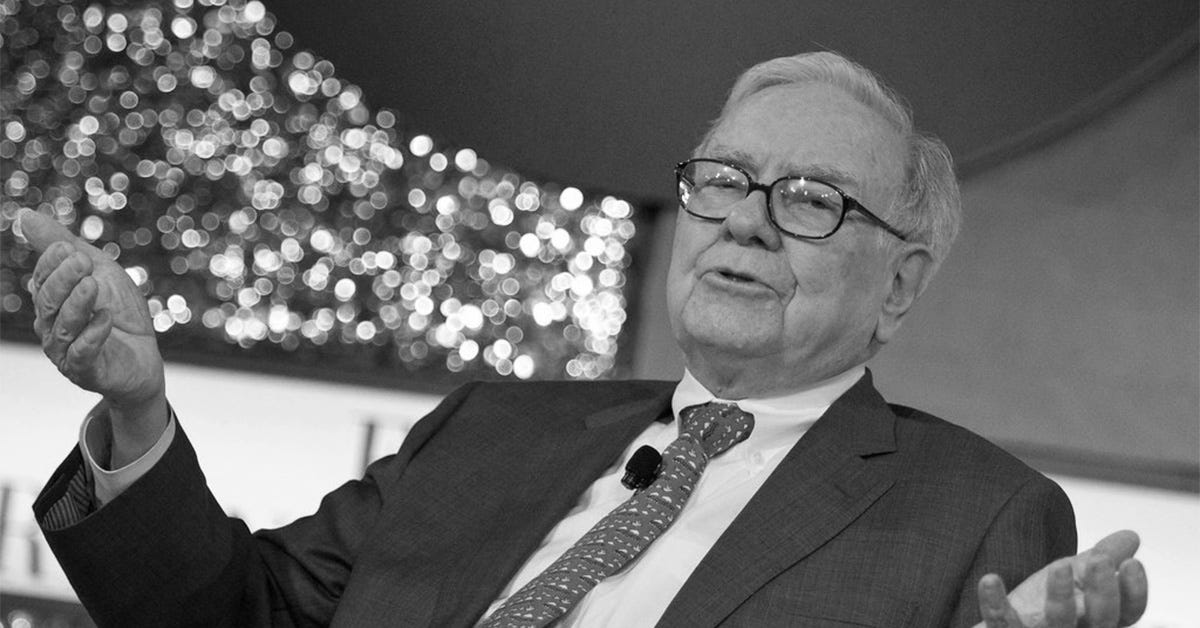The Oracle of Omaha Takes on Progressives
Your Columnist Revisits an Early Subject
Not everyone can be Warren Buffett—but wouldn’t it be fun to try?
I don’t mean his $100 billion fortune in Berkshire Hathaway stock—he has never spent it— not any of it. Nor his outsized bonus (he doesn’t get one). Nor anything else material.
I mean the Omaha investor’s nonpareil penchant for living by his values, according to his own preferences and tastes. He sets his own agenda; he will not be recruited.
Perhaps this is how, while assembling one of the greatest investing records ever, he has kept his life so beguilingly uncluttered. He actually answers the telephone—usually in seconds.
You can chalk it up to his being rich—but you would be wrong. He has always lived that way. I wrote his biography in the 1990s; then and in the intervening years, I’ve never seen anyone so steadfast. At almost 93, he is still devoted to managing Berkshire—now a giant conglomerate and still with an absurdly lean corporate staff of 26.
He has no PR staff, no events department to manage his circus-like annual meetings (this year’s bash is Saturday, in Omaha of course). He resists bureaucracy like the plague. And he has no problem—a big lesson from the book—with saying “no.”
Since he resists regimentation, it’s not too surprising that he would come afoul of the woke orthodoxy that is permeating many a boardroom. Buffett’s refusal to conform to conventional corporate norms—and the ire this has raised among progressives—is the subject of an essay published yesterday in the New York Times.
Quick teaser: Buffett fiercely believes in equal opportunity—but you will not find a department of diversity at Berkshire Hathaway.
His energy subsidiary is investing mightily in alternative fuels—but critics are unhappy because Buffett refuses to check the usual bureaucratic boxes.
Most unwoke of all, Buffett is an unashamed believer that corporations and their boards should serve the shareholders that risk their capital—not some vague collection of associated interests known as “stakeholders” who lack any legal claim to corporate assets.
Buffett cares deeply about American society and is as big a booster of American democracy as you will find. He thinks successful—meaning profitable—businesses are invaluable contributors to Government and to society. His track record over 58 years makes his case.
You can read about this man of principle in the full NYT article here. Or buy the book!


Thank you, Roger, for sharing your wonderful talents and insights. The Buffett book was especially fantastic and facilitated some life changing decisions for myself and many others who have trusted Warren & Charlie and appreciate their exemplary behavior as businessmen, investors and human beings. Thank you!!!
Belatedly reading this piece, Roger. I agree w the prior comment— will you please write more on Buffett or, better yet, on Ajit?
I reread your book in the last couple years. It remains the best biography of Buffett.
Btw, I’m such a Lowenstein fan I even once found and listened to your narrative on Ben Graham. Wonderfully done. And I’ve read ALL your books.
A Lowenstein fan!